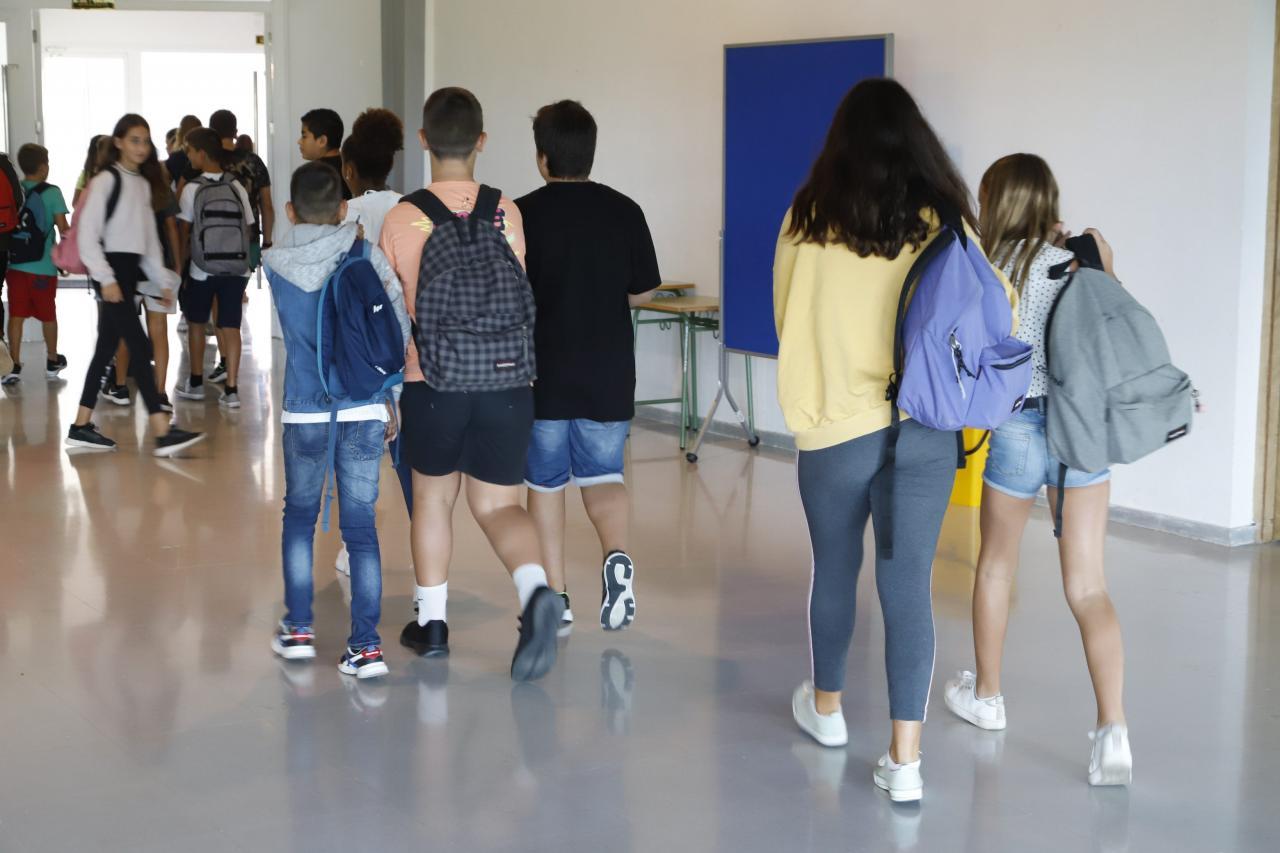Figures released by the national ministry of health on Friday indicated that the incidence rate in Spain for the previous fourteen days was 189.61 cases per 100,000 inhabitants. In the Balearics, this was 249.68. Given this situation, Simebal is arguing that the return to school in the Balearics should be delayed. The union's delegate in Minorca, Claudio Triay, says that there should be a delay until the infection rate stabilises and there is a bending of the curve. He notes that Asturias is considering a delay and yet the rate in that region is lower than in the Balearics.
"The accumulated incidence in the past fourteen days is an indicator of the level of contagion and of whether there is community transmission. There clearly is community transmission, which is difficult to control. Looking at the latest incidence rate, we clearly see a growth and a continuing increase in the number of hospitalisations. The average age of hospitalisations and intensive care unit admissions has dropped. Countries in Europe with much lower rates have already said that they will start the school year with online classes, but this cannot be done in all cases because children need to socialise with each other, especially at younger ages, while families have been at home with their children for five months."
The Simebal view is that the return to school is a risk because of the level of infections in the Balearics. The union adds that medical profession concern is shared by teachers and parents. "Everything that happens in education will have an impact on health, and we are already experiencing serious problems in controlling the current situation." Triay predicts that "so long as transmission is not controlled, it is not safe to open schools". "In fifteen days they will have to close again." If this is the case, there will therefore be evidence of outbreaks and of the pandemic "getting out of control".
If the regional government doesn't delay the return to school, Simebal is proposing that teachers be tested before classes start and that schoolchildren are given saliva tests. Triay explains that saliva testing has been approved by the US Food and Drug Administration and is being used, for example, at Manchester Airport. A Spanish research group has developed an advanced saliva test "with high sensitivity". "It is simple, gives results in one to two hours, and is inexpensive."
Simebal is also proposing that class sizes be lowered to a maximum of ten or fifteen; the regional education ministry (and the national ministry) has stipulated twenty to twenty-five. Where possible, the union is advocating classes being held outdoors and that new areas are set up for classes, e.g. in sports halls.


3 comments
To be able to write a comment, you have to be registered and logged in
The Authorities are recommending up to 25 children in a group? That’s pretty much a full class. It betrays the reality that there are not enough teachers to go around for classes at 10 to 15. Unless they are in a monster sized classroom 25 pupils will be on top of each other and impossible to manage safe distancing. It’s got disaster written all over it. The kids might be ok but the staff will crash and burn, if not from covid, then certainly from the stress!
Event though i dont hace children myself i agree.....they should delay the return to school for now...it is better to be SAFE then SORRY.....for EVERYONES sale.....!!!!!
Everywhere else in the EU children go to school, so why not here? It is a known fact that NOT sending kids to their education, is having a far more severe effect on them than the whole corona virus, including the long term effects it has, will also affect everybody else. Yes, numbers are going up (or are they, because we test a lot more?), but the effect of the virus is nothing like it was in March at all. Hardly any fatalities; people are mostly a-symptomatic. So, are we only looking at the numbers? or are we actually looking at what is happening? Of course doctors would say this, same as if you ask a general what he wants to win the war: more troops, more weapons and bullets. It is a one sided view. Hopefully our government will do the right thing and let educating our youngster to come first, with the appropriate measures in place.